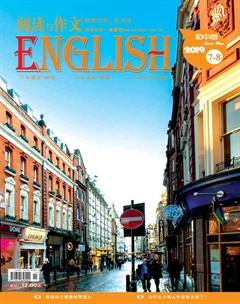中考必备英语语法之情态动词
情态动词是中考最重要的考点之一,考试重点我们会分期讲述。
情态动词有四类:
①只做情态动词:must,can(could),may(might),ought to
②可做情态动词又可做实义动词:need,dare
③可做情态动词又可做助动词:shall(should),will(would)
④具有情态动词特征:have(had) to,used to
情态动词在句中放在谓语动词之前,谓语动词前若有助动词,则在助动词之前,疑问句中,情态动词则在主语之前。
I can see you. Come here.
我能看见你,过来吧。
He must have been away.
他一定走了。
What can I do for you?
你要什么?
How dare you treat us like that!
你怎能那样对待我们!
Can 和Could的用法
1. 表示能力或客观可能性,还可以表示请求和允许。如:
Can you finish this work tonight?
Man cannot live without air.
— Can I go now? — Yes, you can.
注意:①could也可表示請求,语气委婉,主要用于疑问句,不可用于肯定句,答语应用can(即could不能用于现在时态的简略答语中)。如:
Could I come to see you tomorrow?
Yes, you can. (否定答语可用No, Im afraid not.)
②can表示能力时,还可用be able to代替。如:
Ill not be able to come this afternoon.
2. 表示惊异、怀疑、不相信的态度。(主要用在否定句、疑问句或惊叹句中)
Can this be true?
How can you be so careless!
This cannot be done by him.
3. “can(could) + have + 过去分词”的疑问或否定形式表示对过去发生的行为怀疑或不肯定。如:
He cannot have been to that town.
Can he have got the book?
4. 用在疑问句及否定句中,表示惊讶,不相信等.
5. cannot…too\enough表示“无论怎样…也不过分”,“越…越好”
中考必备英语语法之May和Might的用法
1. 表示许可。
表示请求、允许时,might比may的语气更委婉一些,否定回答时要用mustnt表示“不可以”、“禁止”、“阻止”之意。如:
You may drive the car.
— Might I use your pen? — No, you mustnt.
用May I…征询对方许可在文体上比较正式,在口气上比较客气。在日常口语中,用Can I…征询对方意见在现代口语中更为常见。
2. 用于祈使句中表示祝愿。如:
May you succeed!
3. 表示推测、可能(疑问句不能用于此意)。
He may be very busy now.
4. “may(might) + have + 过去分词”表示对过去发生的行为的推测。如:
He may not have finished the work.
must和have to的用法
1. 表示必须、必要。(must表示主观多一些而have to则表示客观多一些)如:
You must come in time.
回答must引出的问句时,如果是否定的回答,不能用mustnt,而要用neednt或dont have to。
— Must we hand in our exercise books today?
— Yes, you must. (No, you dont have to.)
2. “must be + 表语”的结构表示推测,它的否定或疑问式用can代替must。
This must be your pen.
3. “must + have + 过去分词”的结构常用在肯定句中,表示对过去发生的行为的推测。它的否定或疑问式用can代替must。
He must have been to Shanghai.
4. have to的含义与must相似,两者往往可以互换使用,但have to有各种形式,随have的变化而定。must与have to有下列几点不同:
① must表示的是说话人的主观看法,而have to则往往强调客观需要。如:
The play is not interesting. I really must go now.
I had to work when I was your age.
② must一般只表现在,have则有更多的时态形式。
③ 二者的否定意义不大相同。如:
You mustnt go. 你可不要去。
You dont have to go. 你不必去。
④ 询问对方的意愿时应用must。如:
Must I clean all the room?
可怜的人
“Oh, my poor man,”exclaimed the kind old lady, “It must be dreadful to be lame. But it would be much worse if you were blind.”
“Youre absolutely right,” said the beggar, obviously an old hand at the game.“When I was blind, people kept giving me foreign coins.”
“啊,可怜的人,”善良的老妇人惊叹道。“脚瘸就够惨的了,要是眼瞎就更糟了。”
“你说的一点儿没错,”那乞丐说。他显然是乞讨老手。“我眼瞎的时候,人们老是给我外币。”
救出哪幅画
A newspaper organized a contest for the best answer to the question: “If a fire broke out in the Louvre, and if you could only save one painting, which one would you carry out?”
The winning reply was: “The one nearest the exit.”
一份报纸组织了一场竞赛,为下面的问题征集最佳答案:“如果卢浮宫起了火,而你只能救出一幅画,你将救出哪一幅?”
获奖的答案是:“最接近门口的那一幅。”

